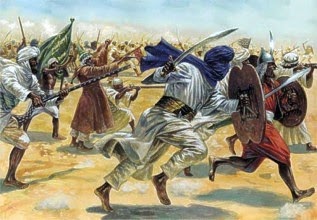Religious unity by anwar abbas
THE main objective of militants such as the Taliban is to expand. They were initially a small group of people with an extremist interpretation of their own, but as time passed, they formed into a larger movement with many smaller groups equally virulent merging into one.
The interpretation offaith expounded by these extremists promotes exclusivity. But Islam is not exclusive; it is part of the whole, of a continuing process of faith in the Almighty.
Let us look at the unity of religious belief through the prism of Islam, the teachings of the Quran and the message of the Holy Prophet (PBUH) to truly understand the dichotomy.
According to the holy book, religion has been a continuous unbroken movement in human history in the quest for the `good life`.
All religions owe their inspiration to the same divine source. The founders and the prophets, and the places of worship, deserve respect while tolerance and appreciation of other faiths is a duty enjoined on all by the Quran.
But many misguided people belonging to various faiths, including our own, have forgotten this significant truth and have adopted a narrow-minded attitude towards other religions. Some have extolled Muslims and those in power who showed intolerance in religious matters. This is clearly repugnant to the teachings of Islam. It would be appropriate to remind Muslims of their heritage and have them reaffirm their faith in tolerance.
There is also misunderstanding on the issue amongst non-Muslims, due either to ignorance or ill-advised attempts of some non-Muslim missionaries and scholars to present Islam in an aggressively unsympathetic light.
Islam starts with the postulate that all religions derive their inspiration from God and they cannot, therefore, be regarded as contradictory.
True, there are doctrinal and incidental differences in the methods of worship, but these are traceable to two causes: one, religions came at different periods of history, at different places and were adjusted to local circumstances and needs; two, there were later accretions made by priests and divines to preserve their power and authority. Some wanted to reinforce orthodoxy to guard their `special identity`.
The Quran has taken the view that all messengers of God have preached basically the same message and stressed the same values and truth.
While deen (spirit of religion) is the same the Sharia (the way of realising it) may differ. Even so, nothing could be more foolishthan to ignore the unity underlining all faiths and to quarrel about the methods prescribed for the practice of different religions.
The differences among the followers of different faiths are marginal and it is the common points that have fundamental significance.
If God had willed to create a world in which all the men and women were alike in every way, the people would have followed the same religion, spoken the same language and evolved an identical pattern of culture and conduct. He did not do so because it was not His purpose.
The different beliefs and ways of life make for enrichment if believers can live in a spirit of tolerance and compete with one another in doing good. It is also extremely important not to impose their will on others by force, at gunpoint or through the explosion of bombs.
In fact the Quran says: `...Strive to excelone another in virtue [which is the objective of the Sharia]. To Allah is your return all together. He will show you the truth of matters over which you dispute`(5:48).
The messengers of God have come to every community and in all ages so that the people may distinguish between right andwrong, the righteous and the unrighteous.
In fact, if we study the lives of the prophets we will find a recurring pattern in their life and work. They emerged out of the community for whose guidance they were sent and spoke the same language.
Few belonged to the rich class and those who did de-classed themselves to identify themselves with the common man. To win over followers they used the power of love and the `magic` of service and sacrifice.
They preached faith in one God and the importance of good deeds, both individually and collectively.
The call of the time is to go bacl< to faith in God and to seek the way of righteous living that unites all peoples of the world.
There are countless simple people throughout the world who live righteously. We must realise that God`s time is cosmic and He is very patient and forbearing. He gives people the grace of time so that they may return to the right path with religious unity and fervour. • The writer is a freelance contributor with an interest in religion.




Comments
Post a Comment